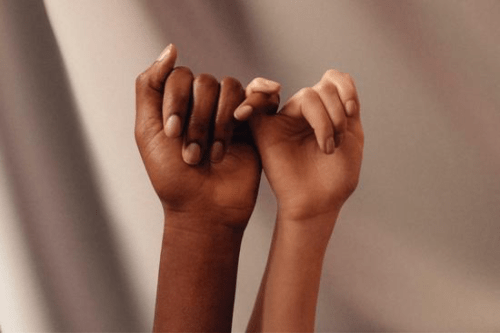Updated: Friday, February 23, 2024
We asked for your help in updating our list of recommended Black History Month books and movies—and you sprung into action! Thank you to everyone who contributed suggestions and for sharing why these literary pieces and films are so important in building understanding and facilitating discussion.
For Part I of our Black History Month: Meaningful Books & Movies blog series, we are updating our recommended book lists below and sharing some of the comments we received about why particular publications and films are so poignant.
Reflections on 2024 Recommendations:
Movie Recommendation: “Amistad”
- Recommended by: Hannah Wadhwania, Adult Learner, Chestnut Hill College
- Reason for Recommendation: “This movie helped me understand how much my generational history differed from those of other races and how important educating children on race/culture can be to a developing mind that may be exposed to racism at home. Children of all races need to see themselves positively represented in the classroom in order to build respect for personal identity and cultures.”
Book Recommendation: I Like Myself by Karen Beaumont (2016)
- Recommended by: Alicha Pantoja, Adult Learner, Chestnut Hill College
- Reason for Recommendation: “This book helped me to realize early on how important positive self-talk is.”
Book Recommendation: Why Are All the Black Kids Sitting Together in the Cafeteria? And Other Conversations About Race by Beverly Daniel Tatum (1997)
- Recommended by: Alexandra Whittington, Assistant Toddler Teacher, Clementine Montessori School
- Reason for Recommendation: “This book opened my eyes to the unique experiences of BIPOC students in the American education system, and helped me recognize the ways that culture and identity can influence my relationships with my students.”
Book Recommendation: How the Word is Passed: A Reckoning with the History of Slavery Across America by Clint Smith (2021)
- Recommended by: Maria-Veronica Barnes, Assistant Head for Program and DEI, Barnes Lexington Montessori
- Reason for Recommendation: “The words we use matter and the stories we tell form the schemas that allow the thinking of our students to take place. Perpetuating oppression is possible because of the narratives that we share and accept as collective truths. There is precisely where our power of action to take down systems of oppression stands. We can change the course of collective knowledge by examining and challenging that narrative. We get to choose what narratives we teach and, to be able to do that, we have a lot to unlearn.”
Movie Recommendation: “13th” by Ava Duvernay
- Recommended by: Maria-Veronica Barnes, Assistant Head for Program and DEI, Barnes Lexington Montessori
- Reason for Recommendation: “This movie unveiled the intention behind oppression. It shows that there are people who benefited and continue to benefit from the injustices perpetrated to Black and Brown people. There is a purpose to the madness. Knowing that in a matter of fact way is liberating and gives hope. If we can make these systems exist, we can also make them go away. We have to be invested in asking the right questions.”
About the Recommended Reading List
The books that we use in Montessori classrooms matter. We must center books featuring diverse characters and counternarratives for all children from Infant & Toddler classrooms through Secondary programs.
To help parents and educators choose age-appropriate books with Black history and Black futures in mind for themselves and students, here are a few title suggestions organized by audience.
The list below samples the many books available at local libraries and bookstores. For more title suggestions to share with your child, check booklists from The Chicago Public Library and the Coretta Scott King Book Awards. And when looking for book titles, consider purchasing from Black-owned bookstores. Look here for a directory with stores listed by state.
Infant & Toddler
(ages birth – 18 months)
Children at this age are beginning to explore the world through their senses. They are learning how to interact with their environment. Long biographies about famous Black Americans or topics surrounding social justice will not be understood. Look for books that explore diversity, equity, and inclusion.
Board Books for Infants
- Babies Around the World by Puck (2017)
- Global Babies by The Global Fund for Children (2006)
- I Like Myself by Karen Beaumont (2016)
Picture Books for Toddlers
- The Colors of Us by Karen Katz (1999)
- Our Skin: A First Conversation About Race by Megan Madison (2021)
- It’s Okay to Be Different by Todd Parr (2001)
Early Childhood
(ages 3 – 6)
More context can be understood by preschool-aged children. Look for stories that your child can relate to somehow. For instance, if your child is drawn to music, share a book featuring a famous Black musician.
Picture Books
- Black is A Rainbow Color by Angela Joy (2020)
- The Me I Choose To Be by Natasha Anastasia Tarpley (2021)
- RESPECT: Aretha Franklin, the Queen of Soul by Carole Boston Weatherford (2020)
- Runaway: The Daring Escape of Ona Judge by Ray Anthony Shepard (2021)
- Watch Me: A Story of Immigration and Inspiration by Doyin Richards (2021)
- We Wait for the Sun by Dovey Johnson Roundtree and Katie McCabe (2021)
Lower Elementary
(ages 6 – 9)
There is a wide range of reading ability in this age group. Most of the picture books listed are best for shared reading which can lead to discussion.
Note: if your child enjoys biographies look for titles in these series:
- A Biography for New Readers
- Ordinary People Change the World
- Who Was?
- She Persisted
Picture Books (with advanced text and story content)
- The 1619 Project: Born on the Water by Nikole Hannah-Jones and Renée Watson (2021)
- The ABCs of Black History by Rio Cortez (2020)
- The Bell Rang by James E. Ransome (2019)
- Henry’s Freedom Box: A True Story from the Underground Railroad by Ellen Levine (2007)
- The Undefeated by Kwame Alexander (2019)
Nonfiction
- 28 Days: Moments in Black History That Changed the World by Charles R. Smith Jr. (2015)
- Can I Touch Your Hair? Poems of Race, Mistakes, and Friendship by Irene Latham and Charles Waters (2018)
- Hidden Figures: The True Story of Four Black Women and the Space Race by Margot Lee Shetterly (2018)
- Ordinary People Change the World: I am Harriet Tubman by Brad Meltzer (2018)
- The Story of Ruby Bridges: A Biography for New Readers by Arlisha Norwood Alston (2021)
Upper Elementary and Secondary
(ages 9 – 12 and 12 – 18)
Again, there is a wide range of reading ability as children move into their tween and teen years. They also might have strong opinions about what they will or will not read.
Nonfiction
- Black Heroes: A Black History Book for Kids: 51 Inspiring People from Ancient Africa to Modern-Day U.S.A. by Arlisha Norwood (2020)
- Stamped (For Kids): Racism, Antiracism, and You by Ibram X. Kendi and Jason Reynolds (2021)
- Timelines from Black History: Leaders, Legends, Legacies by D.K. Publishing; Mireille Harper (Foreward) (2021)
- Unspeakable: The Tulsa Race Massacre by Carole Boston Weatherford 2021)
Fiction
- Brown Girl Dreaming by Jacqueline Woodson (2014)
- Bud, Not Buddy by Christopher Paul Curtis (1999)
- Chains by Laurie Halse Anderson (2008)
- Elijah of Buxton by Christopher Paul Curtis (2009)
- Let the Circle Be Unbroken by Mildred D. Taylor (1981)
- One Crazy Summer by Rita Williams-Garcia (2010)
- Zora and Me by T.R. Simon and Victoria Bond (2010)
For Parents
- Developing a Liberatory Consciousness by Barbara J. Love (2018)
- Four Hundred Souls: A Community History of African America 1619 – 2019 by Ibram X. Kendi (2021)
- How the Word is Passed: A Reckoning with the History of Slavery Across America by Clint Smith (2021)
- My Grandmother’s Hands: Racialized Trauma and the Mending of Our Bodies and Hearts by Resemaa Menakem (2017)
- The Pain We Carry: Healing from Complex PTSD for People of Color by Natalie Gutierrez
- Raising Antiracist Children: A Practical Parenting Guide by Britt Hawthorne
- Sisters of the Yam: Black Women and Self-Recovery by Bell Hooks
- This Book is Anti-Racist by Tiffany Jewell (2020)
- Undrowned: Black Feminist Lessons from Marine Mammals by Alexis Pauline Gumbs (2022)
- We Live for the We: The Political Power of Black Motherhood by Dani McClain (2019)
- White Fragility: Why It’s So Hard for White People to Talk About Racism by Robin DiAngelo (2018)
- Why Are All the Black Kids Sitting Together in the Cafeteria? And Other Conversations About Race by Beverly Daniel Tatum (1997)
Note: For more titles check the Chicago Public Library’s list here.
About the Author
 |
V. Kulikow is a former Montessori teacher and youth services librarian. She currently works as a UX designer and enjoys content creation both with words and images. |
The opinions expressed in Montessori Life are those of the authors and do not necessarily represent the position of AMS.


